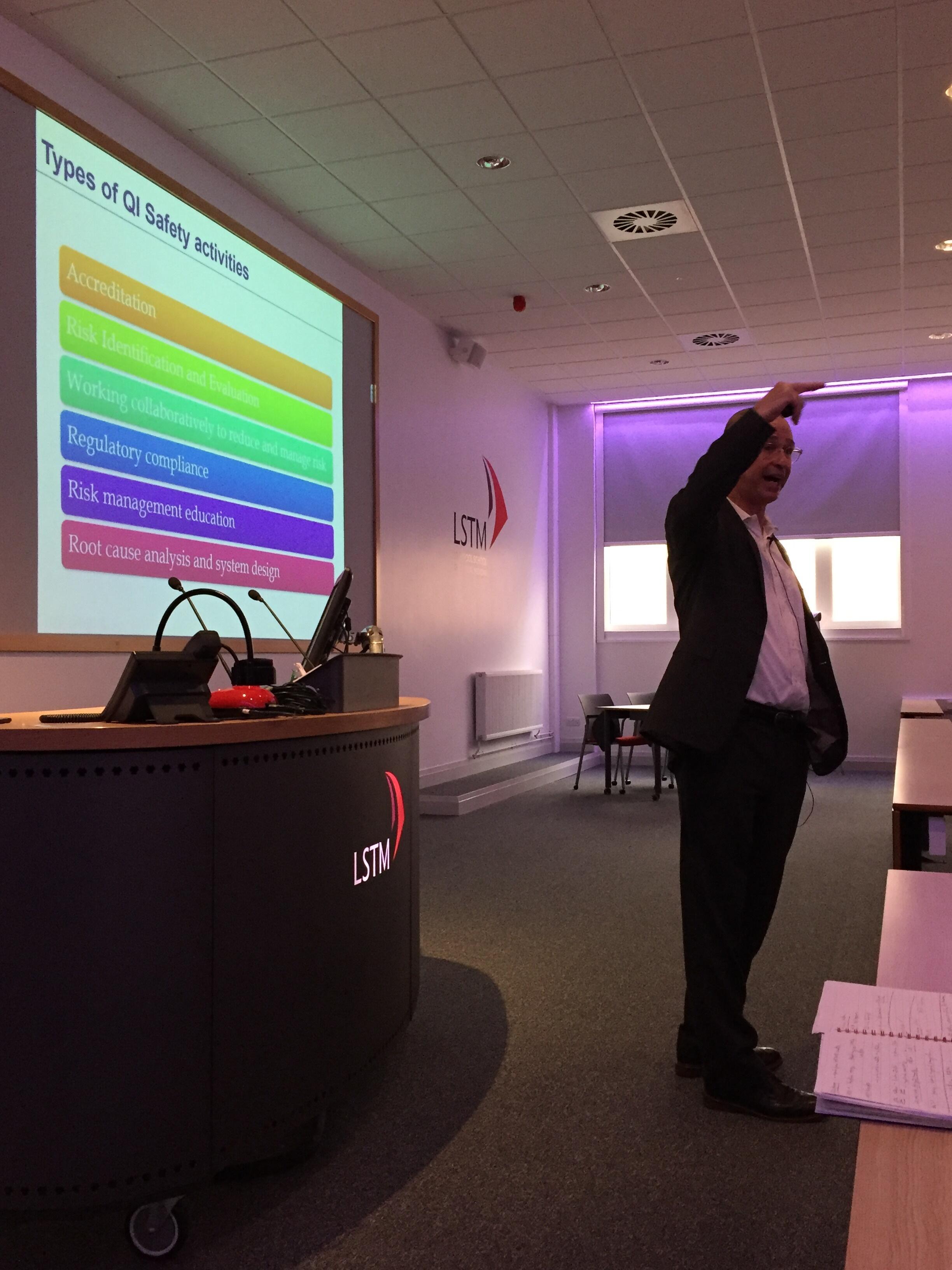
This week saw a special seminar at LSTM when Dr Peter Lachman, CEO of The International Society for Quality in Health Care (ISQua), delivered a presentation: Quality Improvement in the NHS and Internationally to a selection of staff, students and invited guests.
His talk was introduced by LSTM’s Professor Stephen Allen and Dr Lachman began by posing the question as to where we are now in terms of quality of care and patient safety in the NHS and internationally. Despite the first promise taken by a doctor as part of the Hippocratic Oath, “First do no harm”, the first research looking at harm within the medical profession in the 1990s showed that an average of 10- 15 percent of patients were subject to harm at the hand of their medical professionals, a figure that seems to be reflected internationally. While those figures remain around the same level today, he pointed out that what has changed is the type of harm and the definition of harm itself.
Dr Lachman looked at the six questions that need to be asked for quality improvement: Is healthcare safe, person centred, equitable, timely, effective and efficient? He explained that key problems in health care that occur globally are failure or delay in diagnosis, prescription errors and not recognising patient deterioration. Also, provision of health services remains inequitable. While we have made progress in some areas, there are others that require further work, in particular in terms of equity. He also used the Heinrich Pyramid to illustrate that for everyone one catastrophe, which might be the death of a patient, there are potentially 30,000 risk behaviours that should be the things that are tackled first to improve safety. He also highlighted the difficulty in how the health system is organised into “-ologies” meaning that the many patients with more than one chronic condition end-up with multiple hospital visits seeing many different health professionals.
Keen to stress the progress that has been made, Dr Lachman explained that researching safety in the NHS and other health systems all over the world had moved from risk management, to looking at safety, not just in relation to what goes wrong but also examining the factors that result in the majority of things that go right. He highlighted 10 strategies that have been proven to have a positive impact on safety, along with a further 10 that showed encouraging results so far. These strategies have been adopted by many, but not all, hospitals in the UK.
He concluded by stressing that in order to improve, there needs to be more research, especially realistic research that deals with complex systems. We need to be able to measure results, collect and share evidence and build on that evidence base. Dr Lachman explained that context was a key factor, not everything will work everywhere, and while researchers may well all be looking for the “holy grail”, increasing the evidence base that underpins quality and patient safety is the way to ensure lasting progress.
A video recording of the presentation can be found here.